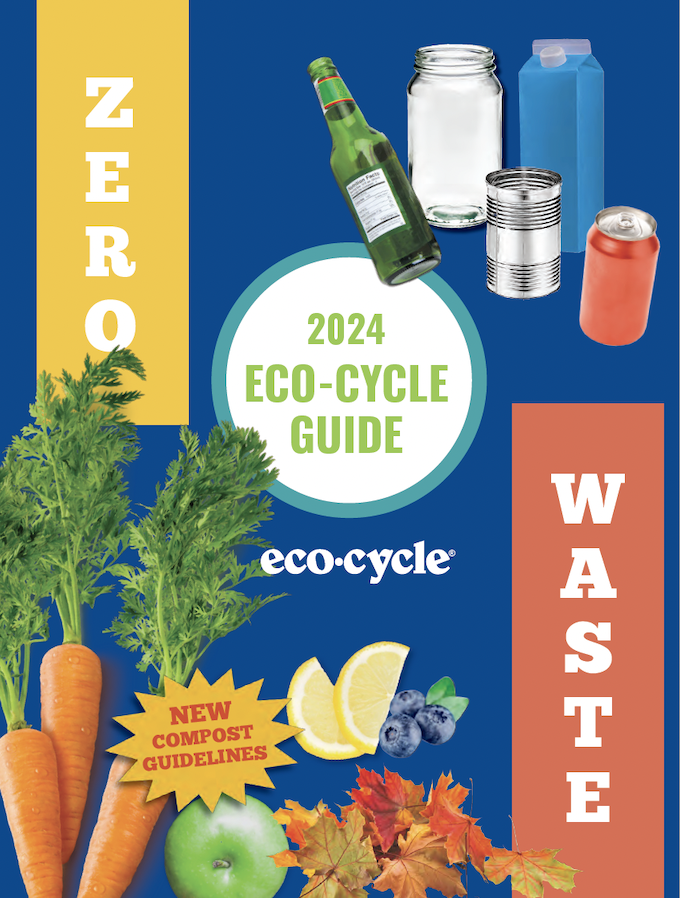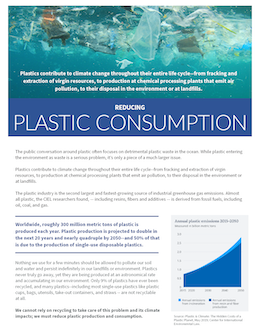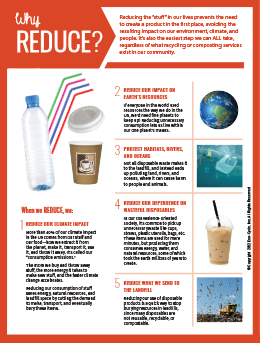Why Using and Wasting Less “Stuff” Is a Top Climate Action
“Reduce” ranks first in the waste reduction hierarchy of “reduce, reuse, recycle, and compost” for a reason. Reducing the “stuff” in our lives prevents the need to create a product in the first place and therefore avoids the resulting impact on our environment, climate, and people. It’s also the easiest step we can ALL take, regardless of what recycling or composting services exist in our community.
Before you recycle . . . before you compost . . . REDUCE, and you can:
Reduce Our Climate Impact
More than 40% of our climate impact in the US comes from our stuff and our food—how we extract it from the planet, make it, transport it, use it, and throw it away. This impact is called our “consumption emissions.” The more we buy and throw away stuff, the more energy it takes to make new stuff, and the faster climate change accelerates. Reducing our consumption of stuff saves energy, natural resources, and landfill space by cutting down the demand to make, transport, and eventually bury these items.
Reduce Our Impact on Earth’s Resources
If everyone in the world used resources the way we do in the US, we’d need five planets to keep up! Reducing unnecessary consumption lets us live within the means of our one planet.
Protect Habitats, Including Rivers and Oceans
Not all disposable waste makes it to the landfill, and instead ends up polluting land, rivers, and oceans where it can cause harm to people and animals.
Reduce Our Dependence on Wasteful Disposables
In our convenience-oriented society, it’s common to find yourself in possession of unnecessary waste like disposable cups, straws, plastic utensils, bags, etc. These items are used for mere minutes, but producing them consumes energy, water, and natural resources, some of which took the Earth millions of years to create.
Reduce What We Send to the Landfill
Reducing our use of disposable products is a quick way to stop burying resources in landfills, since many disposables are not reusable, recyclable, or compostable.



























